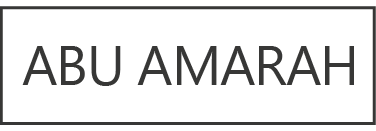O you who believe! Remember Allāh with much remembrance. And glorify His Praises morning and afternoon [the early morning (Fajr) and ‘Asr prayers].
al-Aḥzāb, 33 (41-42)
Adhkaar (remembrance) for Protection
You must know the most basic invocations for entering and leaving the house, entering and leaving the bathroom, before sleeping and when waking up, entering and leaving the Masjid, and other invocations per situations, times and places.
Recite the Qur’ān regularly, and understanding it. Get your children involved with learning invocations for protection from an early age.
MORNING & EVENING ADHKAR
- “Bismillāhī-lladhī la yadurrū ma’asmihī shai’un fil ardī wa-la fis-samā’i wa huwa as-Samī’ul-Alīm.”
In the Name of Allāh in whose Name nothing is harmed in the earth or in the heavens, and He is the All-Hearing, the All-Knowing. [1]
Recite three times in the morning and in the evening (Fajr and Maghrib).
- al-Baqarah 2, 255 (āyat-ul-Kursī)
After every fardh (obligatory) prayer. [2]
- al-‘Ikhlāş 112, al-Falaq 113, an-Nās 114
Three times in the morning and in the evening. Also, when going to bed, recite and then blow on your palms and pass them over your face and those parts of your body that your hands can reach. (3)
- “Laa ilaaha ill-allaahu, waḥdahu laa shareeka lahu, lahul-mulku wa lahul-ḥamdu, wa huwa ‛alaa kulli shay’in qadeer.”
None has the right to be worshipped but Allāh alone who has no partner. His is the dominion and to Him belongs all praise; he has power over all things.
Say this ten times in the morning and evening. [4]
Du’a to protect your children from evil eye
- “A’udhu bi kalimatillahi at-tammati min kulli shaytanin wa hammatin wa min kulli ‘aynin lammah”
I seek refuge in the perfect words of Allah from every devil and poisonous reptile, and every envious eye.
(Sunan Ibn Majah, Hadith 3525)
BEFORE SLEEPING
- al-Baqarah 2, 255 (āyat-ul-Kursī)
- al-Baqarah 2, last two verses 285-286. (5)
- al-Kāfirūn 109. (6)
- al-‘Ikhlāş 112, al-Falaq 113, an-Nās 114
Three times in the morning and in the evening. Also, when going to bed, recite and then blow on your palms and pass them over your face and those parts of your body that your hands can reach. [3]
You can find more adhkar in du’a’ books and apps like ‘Fortress of The Muslim’ and ‘Hisnul Muslim’.
Footnotes:
- Collected by At-Tirmidhī 5/465, Abū Dawūd 4/323 and Ibn Mājah 2/1273. See Sahīh Ibn Mājah 2/332.
- Collected by Al-Hākim, Adh-Dhahabī agreed with him 1/562, see At-Targhīb by Al-Albānī 1/273, No. 658.
- Narrated by ‘Aisha (Radia-Allahu ‘Anha), “Whenever the Messenger of Allah (peace be upon him) went to bed, he used to recite Surah Al-Ikhlas (112), Surah Al-Falaq (113) and Surah An-Nas (114) and then blow on his palms and pass them over his face and those parts of his body that his hands could reach. And when he fell ill, he used to order me to do like that for him.” (Sahih Bukhari, Volume 7, Book 71, Number 644).
- “Allah will record one hundred good deeds for whoever says this ten times in the morning, and forgive him one hundred sins. He will have the reward of freeing a slave and will be protected from Satan throughout the day until dusk. Whoever says it in the evening will have the same reward.” “…or say it at least once.” (Related in Musnad Ahmad).
- (“Whoever recites the last two verses of Surat al-Baqarah at night, it will suffice him.”) According to Abu Masood al-Ansaari and narrated by al-Bukhaari, 4723; Muslim, 807.
- It was narrated that Nawfal al-Ashja’i (may Allaah be pleased with him) said: The Messenger of Allaah (peace and blessings of Allaah be upon him) said to me: “Recite Qul yaa ayyuha’l-kaafiroon then go to sleep at the end of it, for it is a disavowal of shirk.” (Narrated by Abu Dawood (5055) and al-Tirmidhi (3400); classed as hasan by Ibn Hajar in Nataa’ij al-Afkaar (3/6); classed as saheeh by al-Albaani in Saheeh Abi Dawood).

